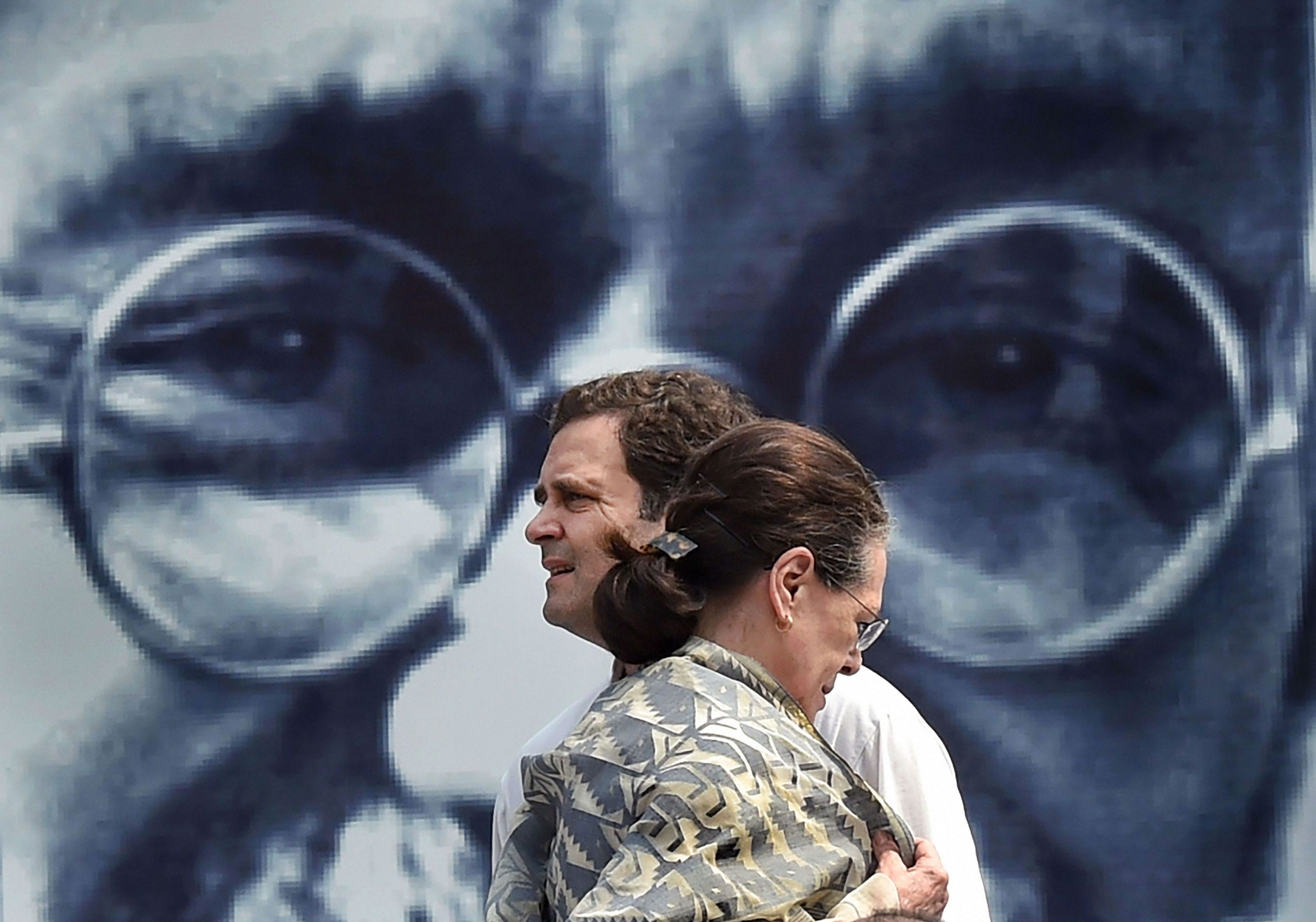
Is this endgame for secularism in Indian politics?

Is secularism as a component of political ideology headed for death in India? The coming together of ideological poles in Maharashtra will suggest so.
The last citadel of the Indian version of secularism, the Congress, has all but crumbled with the Grand Old Party readily agreeing to sup with the ‘devil’, the Shiv Sena, in Maharashtra.
The Congress will justify its future cohabitation with the rabidly communal Sena by flaunting a common working programme that avoids all areas of ideological divergence between the two parties. Or it will mumble something like “we have done it in the interest of Maharashtra.”
Or as a leader of the Nationalist Congress Party, an ideological offshoot of the Congress and the architect of the three-party coalition against the BJP, said, “Didn’t Stalin and Churchill come together to fight Hitler?”
Also read | Maharashtra should teach cagey Cong to buck up and strategise better
The truth though is a steady weakening of the Congress’ secular conviction over the years, and especially so after it was swamped by the emergence of an unabashed, muscular Hindutva unleashed by the Bharatiya Janata Party led by Prime Minister Narendra Modi.
The desperation to project itself as much a champion of the majority Hindus as the BJP was so much in evidence during the campaign for the last Lok Sabha elections.
For instance, the then Congress President Rahul Gandhi’s temple runs, invocation of his Brahmin lineage, and the inability, or perhaps, the unwillingness of the Congress to make lynchings under the guise of cow protection a talking point in its poll campaign.
The Congress had laid itself bare to ridicule for its muddled espousal of a ‘soft Hindutva’ line so much so that it began to look like the ‘B team’ of the BJP.
Political parties can alter their ideological positions over time but how has the Shiv Sena changed its stances? It fought the Assembly elections in a partnership with the BJP, hailed the Modi government for the triple talaq law, vociferously spoke in favour of a Ram temple at Ayodhya, and argued for a common civil code.
Where is the evidence to show that the Sena is no more the party of the past, infamous for its rabid, outrageous statements against Muslims and belligerent stance against non-Maharashtrians?
Also read | In Maharashtra, the BJP is learning the dangers of riding a ‘tiger’
And how can the Congress forget the role of the Sena in one of the worst anti-Muslim riots in Mumbai in 1992?
How will the Congress reconcile this ideological sacrifice with its ally in Kerala, the Muslim League? Or in Karnataka if the Janata Dal (Secular) ties up with the BJP after the December 5 by-elections — indications of such a possibility are in the air — will criticism of such a move not sound hypocritical?
It is not as if such ideological u-turns are new to Indian politics. Regional parties like the DMK, TDP and the JD(S) have flitted in and out of secular and majoritarian camps with regularity with the sole objective of being on the right side of political power. But for a national party which has vowed by its secular credentials for long, it will be difficult to explain away its ideological departure to its core constituency, the religious minorities, easily.
It may be true that the Muslims haven’t been looking up to the Congress alone to safeguard their interests and have turned to the Samajwadi Party, Bahujan Samaj Party and the Muslim League in some States. But in regions where there is no alternative, the Congress has remained the go-to party for them.
Also read | BJP making attempts to subvert democracy in Maharashtra: Sonia
Congress President Sonia Gandhi’s initial reluctance to go through with the three-way alliance in Maharashtra was understandable, given the problems that may arise in the future as they settle down to the task of governing the State.
But if she was finally brought around only for the reason that an opportunity to share power in a key State should not be squandered away, it is a sad commentary on all her colleagues who convinced her to go for it.
Personally, Sonia would have much to hate the Sena whose founder Bal Thackeray had mounted a vitriolic campaign against her foreign origin.
It is equally ironical that Sharad Pawar, the one credited with stitching together what seemed an improbable alliance, had broken away with the Congress on Sonia’s Italian origin.
But politicians know well when to ignore a personal affront or two, don’t they?
Also read | NCP-Sena-Cong pact won’t last longer, says Gadkari
The only saving grace, if it can be called that, is that the common minimum programme the three parties have drafted declares that they will uphold the secular values as enshrined in the Constitution of India.
(The writer is an independent journalist based in Bengaluru. He has reported extensively on politics and policy for leading news publications in India and the Gulf)
(The Federal seeks to present views and opinions from all sides of the spectrum. The information, ideas or opinions in the articles are of the author and do not necessarily reflect the views of The Federal.)


